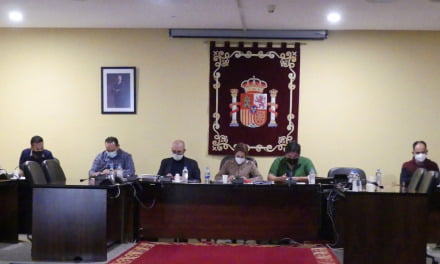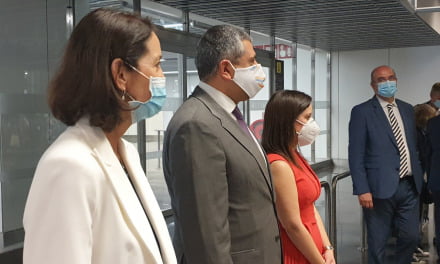 The Spanish political parties Unidos Podemos – En Comú Podem – En Marea, PNV and the UPN have all supported a proposal admitted in the recent plenum meeting of the Congreso de Los Diputados (Spain’s lower house, similar to the house of commons in the UK) to process a PSOE bill (proposal of law) that looks to compel companies to keep a record with the hours worked by each employee. Regardless of the votes of Esquerra Republicana or the PDeCAT, who were understandably absent during the debate on Tuesday, the PSOE is now guaranteed admission of the initiative thanks to the abstention by the centre right Ciudadanos party (C’s), who are in disagreement with the form of the proposal. For their part, the conservative PP emphasized that the initiative forgets “the new trends in the world of work”, pointing out that this issue is already being dealt with by the Bureau on quality of employment, between the trade unions CC.OO. and UGT, the business organizations CEOE and Cepyme, and the Ministry of Employment and Social Security.
The Spanish political parties Unidos Podemos – En Comú Podem – En Marea, PNV and the UPN have all supported a proposal admitted in the recent plenum meeting of the Congreso de Los Diputados (Spain’s lower house, similar to the house of commons in the UK) to process a PSOE bill (proposal of law) that looks to compel companies to keep a record with the hours worked by each employee. Regardless of the votes of Esquerra Republicana or the PDeCAT, who were understandably absent during the debate on Tuesday, the PSOE is now guaranteed admission of the initiative thanks to the abstention by the centre right Ciudadanos party (C’s), who are in disagreement with the form of the proposal. For their part, the conservative PP emphasized that the initiative forgets “the new trends in the world of work”, pointing out that this issue is already being dealt with by the Bureau on quality of employment, between the trade unions CC.OO. and UGT, the business organizations CEOE and Cepyme, and the Ministry of Employment and Social Security.
Socialist Employment spokeswoman, Rocío de Frutos, has argued that the initiative would serve to guarantee conciliation, would improve resources for Social Security – because all hours worked would be quoted – and would address the psychosocial risk involved with “excessive presence in the workplace “.
“The minimum thing [we need] to talk about quality of work is that a worker can demonstrate what [hours they] work, charge for what they work, and quote [the amount] they charge,” said the Socialist deputy, arguing that mandatory registration “would [put an end to] the excess of unjustified hours and would give the worker an indispensable element of proof “.
She also argued that control of hours worked would boost job creation because, according to calculations by the trade unions, to which De Frutos referred, computing all unpaid overtime could create more than 326,000 new jobs .
3.5 million free hours each week
Her counterpart in Unidos Podemos, Alberto Rodríguez, stressed during his speech that every week we work 3.5 million unpaid hours in Spain. “This is completely illegal, unconstitutional too” he remarked.
“This is breaking Spain in half. They are stealing money from working people,” Rodríguez added, recalling that the most recent proposal from Podemos to amend the Workers’ Statutes ended with a veto from the government, which in his opinion was “direct aggression toward the separation of powers”.
“For the PP, the separation of powers, workers’ rights and democracy itself are not an advance of humanity, but uncomfortable obstacles [with which] to do what they like most: stealing, exploiting, looting and dividing the country,” he said concluding his speech by addressing the ‘popular’ government benches.
If there is no record, there is no overtime
On the part of the PNV, Íñigo Barandiaran expressed support for the idea of knowing the overtime hours work, but especially for the need to reverse the current burden on the worker to have to prove overworked hours.
All this is a consequence of the current legislation, he explained, since this only covers the obligation to keep an account of hours in case they are “extraordinary”, so if the hours are no registered, they are not taken into account.
The UPN’s deputy Íñigo Alli also supported the processing of this bill, proposed by the PSOE, pointing out that the recording of overtime “is habitual in the industrial sector” and asking “Why not in the services sector?” calling for workers to avoid “marathon days”, which do not improve productivity or generate more jobs.
C’s abstention: “There are other options”
Speaking “in accordance with the substance of the proposal,” but in disagreement with the form it takes as put forward by the PSOE, C’s justified their abstention by refuting several of the points in the proposal, despite the fact that their deputy Sergio del Campo has recognised the serious problem with the non-fulfillment of working days.
In any case, Del Campo has pointed out that registration is not “the most efficient way to control the [working] day” and pointed out that, although it is mandatory in part-time work, “it has become more of an administrative obstacle than an effective mechanism”.
“You just have to see the levels of fraud there are,” he argued.
In this regard, he advocated promoting electronic systems that guarantee the veracity, accuracy and control of inspection and the unions, and to compel companies to propose means of verification and, if they cannot, to reverse the burden of proof.
PP: “They forget the new labor trends”
PP MP Carmelo Romero criticised the proposal for forgetting “new trends in the world of work”, and listed factors, among others, as flexibility in business, the digital economy and work based on results.
While recognizing the need to clarify work hours timetables, Romero pointed out that this issue is already being addressed in the committee on the quality of employment.
“Let’s be prudent and leave all the agents that agree. If it is not possible, it will be the legislature that dictates the minimums to stick to,” he concluded.
Source: La Provincia













